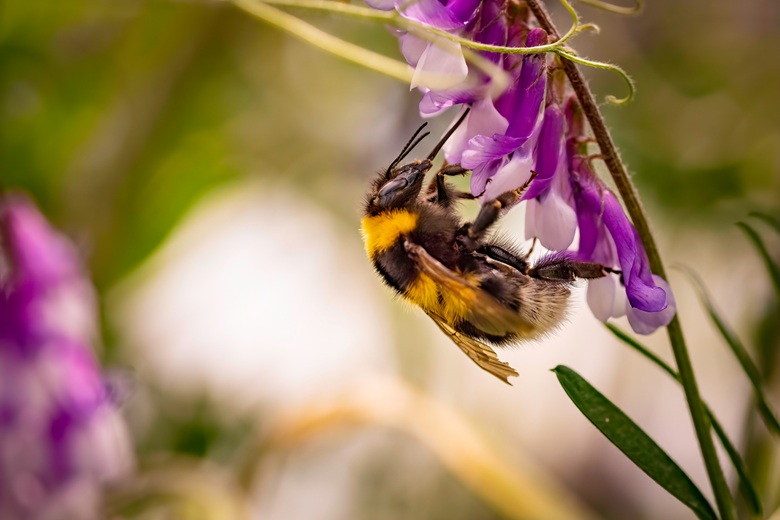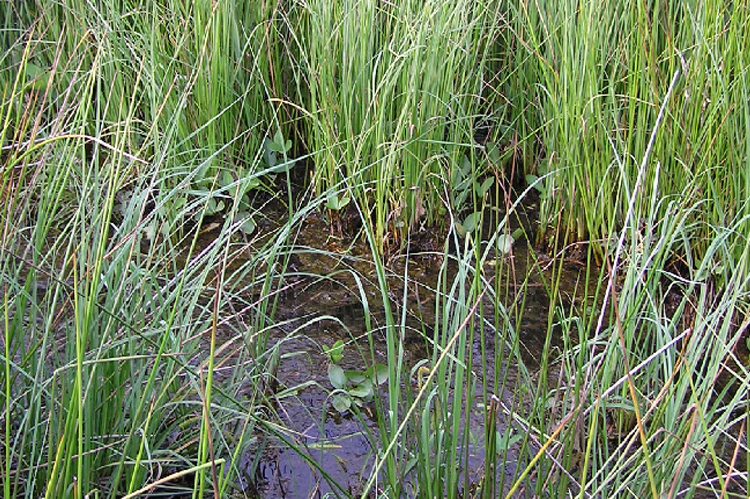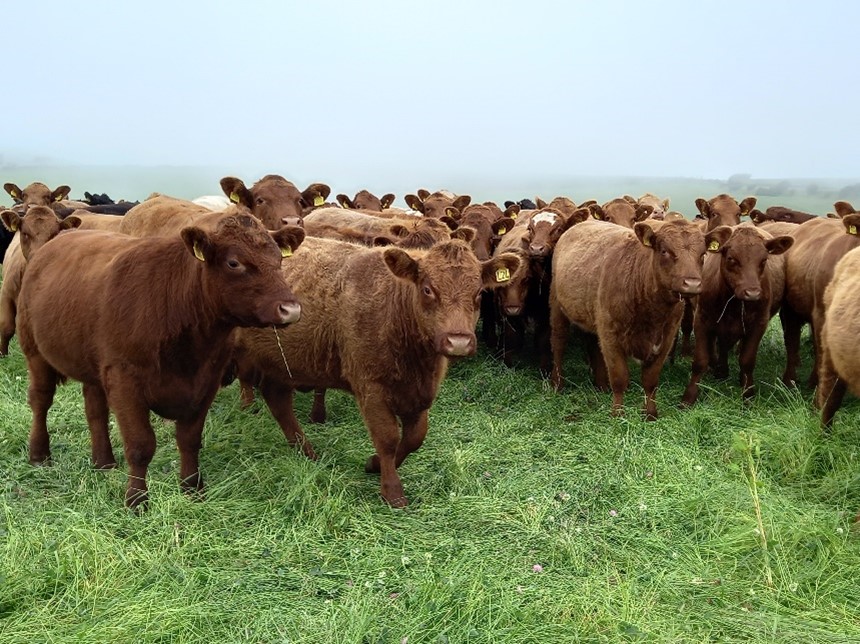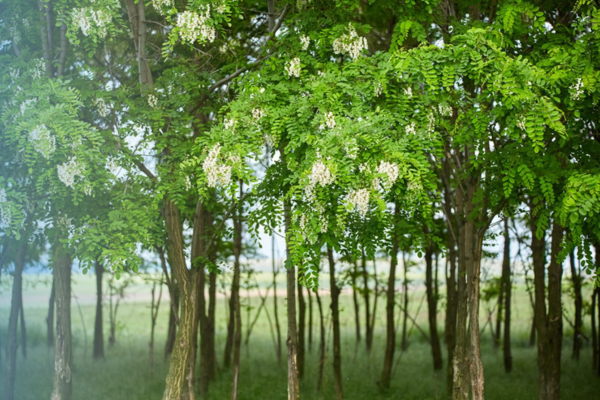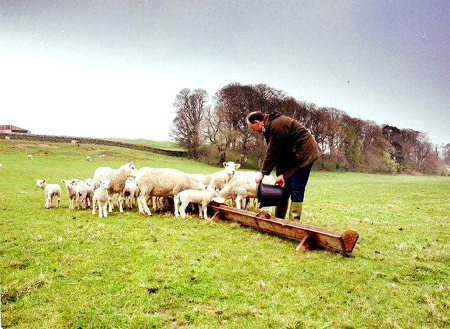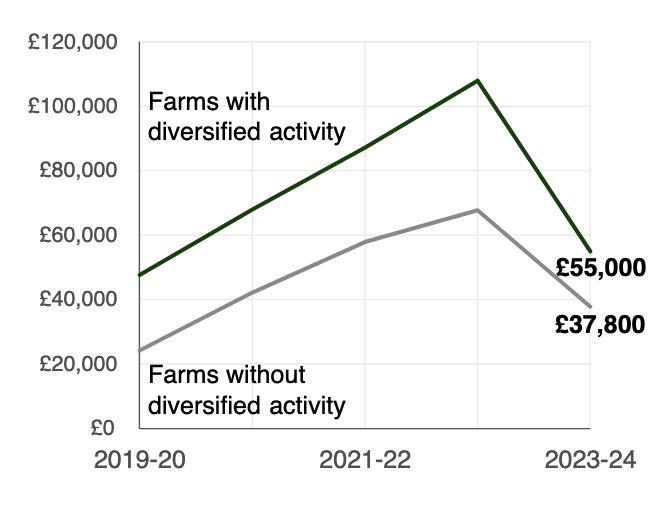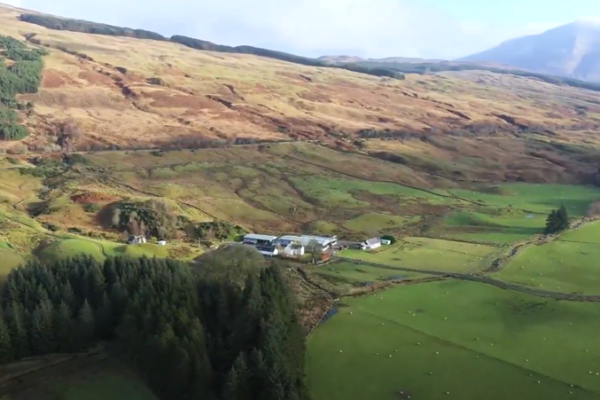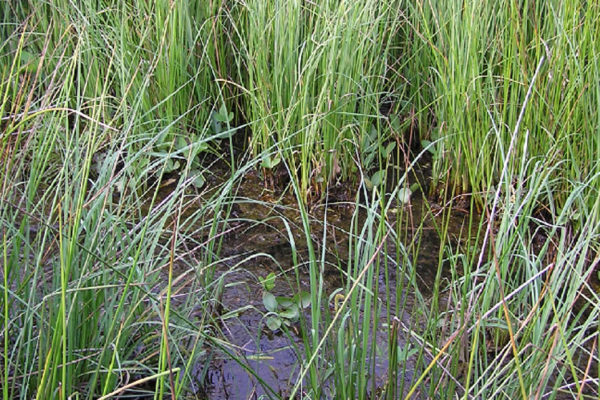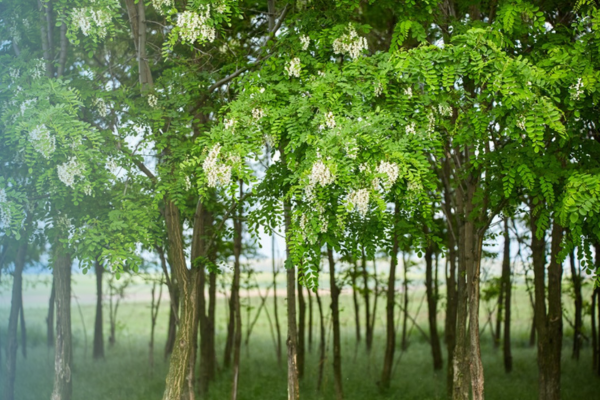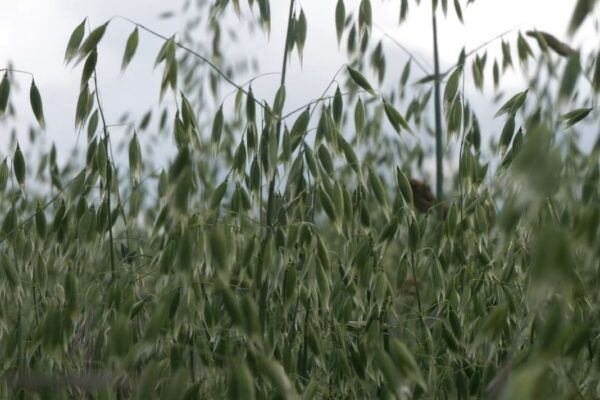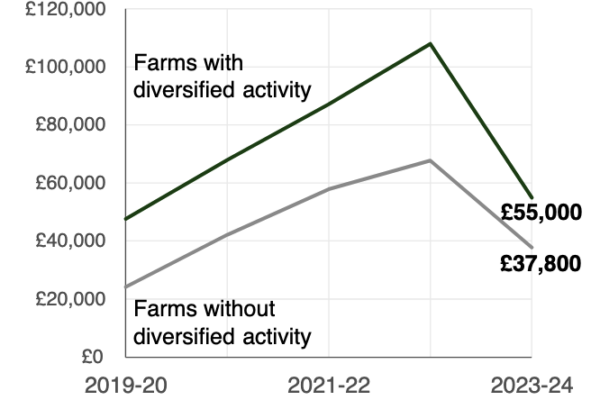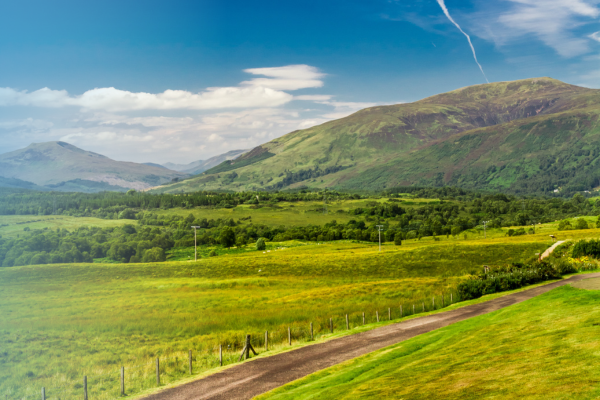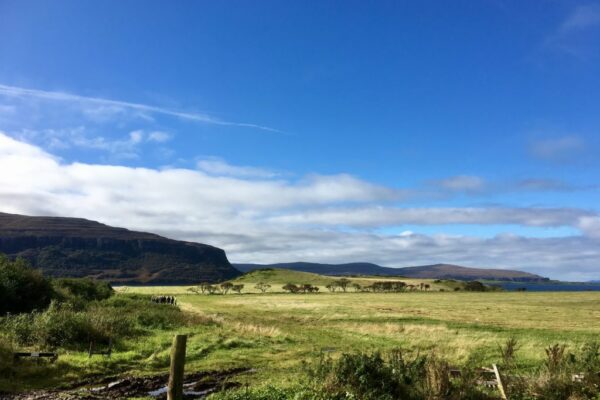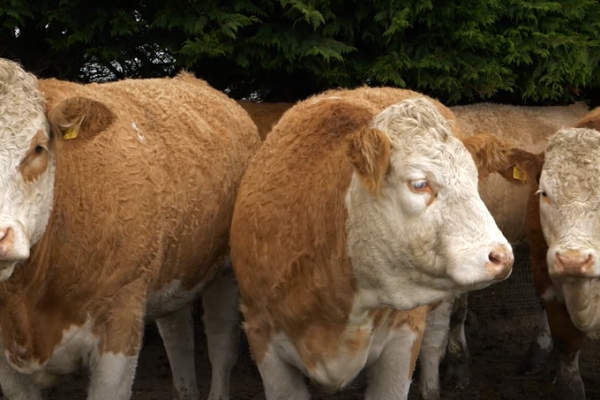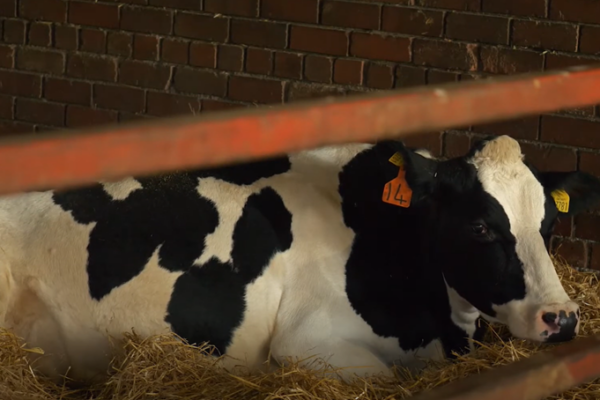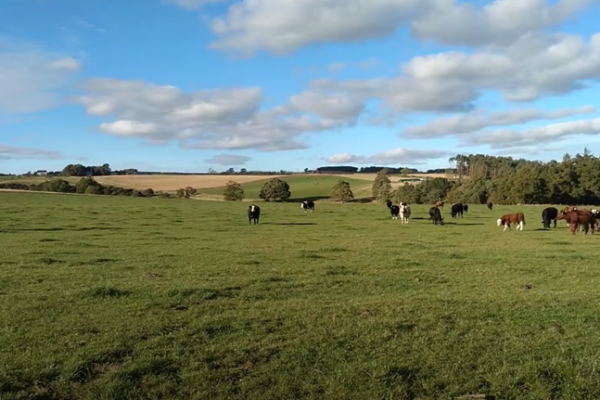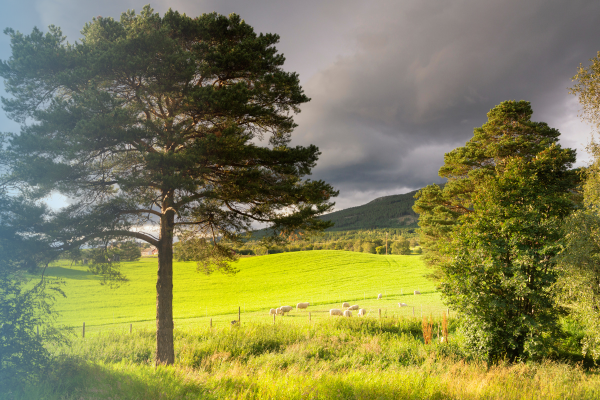Agribusiness News April 2025 – Pollinator’s Value To Scottish Agriculture
31 March 2025Insect pollinators: their value to Scottish agriculture
Flowering crops are alive with a diversity of insects including hoverflies, bees, beetles and butterflies. These beasties are hard at work collecting nectar and pollen, and in return, they provide a crucial pollination service. They transfer pollen between flowers, contributing to the production of fruits, seeds, and vegetables. Pollinators, therefore, play an important role in food security.
Value to crop production
Insect pollinators improve the yield and quality in 75% of the world’s leading crops. They increase seed production in oilseed rape and beans, and enhance yield and quality in apples, raspberries and strawberries.
Carefully designed experiments that exclude pollinators from crops have allowed us to calculate their contribution to production. This ranges from 69% for apples to 45% for strawberries and raspberries and 25% for oilseed rape and field beans. These values have allowed us to estimate that insect pollination services increase productivity by ~£630 M per year in the UK.
Looking at the wider value
If you only grow wind pollinated crops such as barley, wheat and oats you may wonder if there is any economic value in trying to enhance pollinators. Pollinators such as hoverflies and wasps are also natural enemies, helping to control pests such as aphids.
Insects not only pollinate our crops but also our wildflowers, with over 87% relying on pollinators. They, therefore, underpin the health of semi-natural habitats on our farms – our species-rich grasslands, buffer strips, woodlands and hedgerows. Through pollinating wildflowers, they provide seeds and berries for birds and mammals. Finally, I would argue that there is little more uplifting than seeing a butterfly flutter across your field, or a bumblebee hard at work seeking nectar from a flower strip you have planted.
Future farming systems
As we move towards more sustainable farming systems, the value of insect pollinators is likely to increase. Climate change, dietary shifts and policy changes (particularly enhanced conditionality) are likely to see an increase in nitrogen-fixing crops such as beans, lucerne and perhaps crops such as soya and sunflowers. These crops are all highly dependent on pollinators. Furthermore, as insecticides lose their potency or are withdrawn from the market, we will become more reliant on natural enemies to control pests.
Bumblebee pollinating oilseed rape
Insect pollinators therefore have a crucial role to play as we move towards more sustainable farming systems.
Threats to pollinators
Across the globe, we have seen a decline in insect pollinators as they face a cocktail of pressures including habitat loss, pesticides and agricultural intensification. Scotland, however, is bucking this trend with insect pollinators actually increasing. This is likely driven by our large areas of semi-natural habitat managed through extensive grazing, alongside climate change, resulting in warmer more favourable conditions for pollinators.
Actions to support pollinators
While Scotland’s pollinators seem to be faring okay; this does not mean we should rest on our laurels. Pollinators play a crucial role in food production and underpin the health of our agricultural ecosystems. With pollinators responding to environmental change in different ways, supporting a diversity of species is fundamental to resilient farming systems.
Agri-environment actions to support insect pollinators such as flower-rich field margins can increase crop yields and pest control services. These habitats, however, often deteriorate over time reducing their value to wildlife and production.
The Farm Advisory Service’s Pollinator Portal has lots of tips on how you can enhance insect pollinators on your farm. Have a look and see what would work on your farm. With pollinators quickly learning where new food sources are, you won’t have long to wait until you are rewarded with the hum of insects.
Lorna Cole, Lorna.Cole@s,ac.co.uk
Sign up to the FAS newsletter
Receive updates on news, events and publications from Scotland’s Farm Advisory Service

